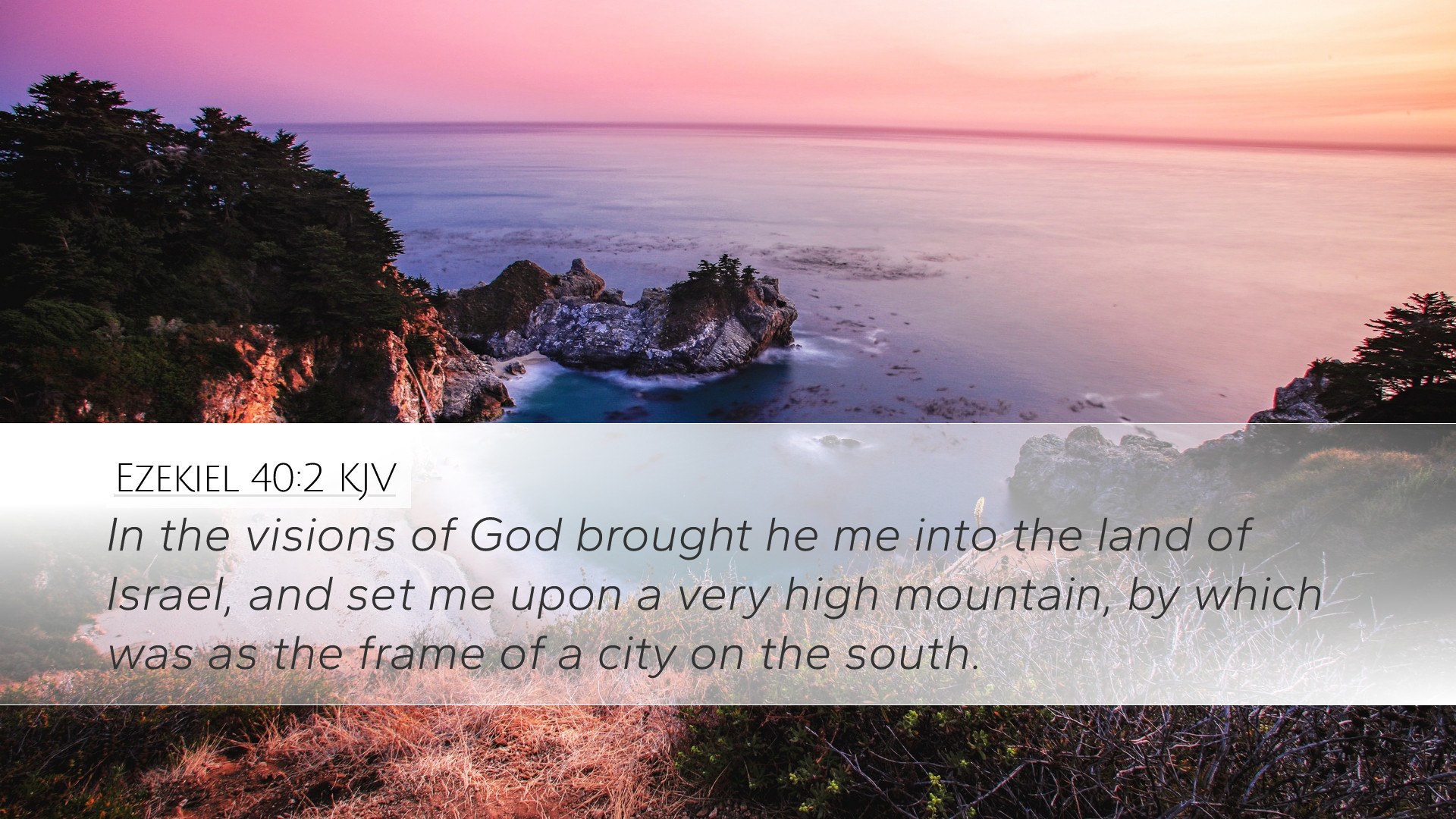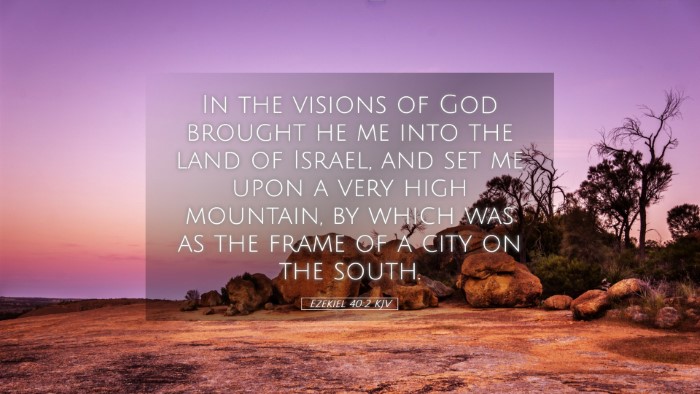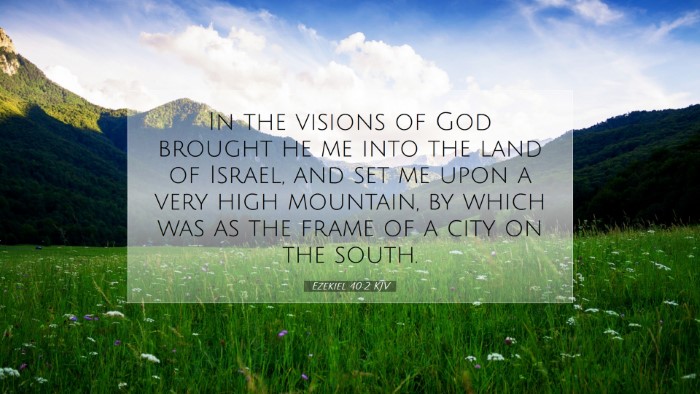Bible Commentary on Ezekiel 40:2
Verse Text: "In the visions of God brought he me into the land of Israel, and set me upon a very high mountain, by which was as the frame of a city on the south." - Ezekiel 40:2
Introduction
The vision of Ezekiel in this passage marks a significant transition in his prophetic ministry, establishing a foundation for understanding the future restoration of Israel. This commentary seeks to delve into the profound implications of this verse, drawing from insights of esteemed biblical scholars including Matthew Henry, Albert Barnes, and Adam Clarke.
The Context of Ezekiel 40
In the preceding chapters, Ezekiel addressed the sins and impending judgment of Israel. However, chapter 40 introduces a new, hopeful vision that focuses on the restoration and renewal of God's people. This chapter serves as a preparation for the descriptions that follow about the temple, worship, and the community of God's people.
Vision and Revelation
Ezekiel states that he was taken in the “visions of God,” indicating an encounter that transcends the ordinary. Matthew Henry emphasizes that divine revelations often come during times of need and are necessary for understanding God's plan. Here, God is revealing a fresh start for His people, symbolizing hope and restoration amidst their current despair.
The High Mountain
The high mountain of Ezekiel’s vision plays a crucial role. Albert Barnes notes that mountains in Scripture often signify places of divine revelation and closeness to God. This high elevation suggests a place from which significant spiritual and prophetic declarations can be made. It symbolizes stability and greatness, in direct contrast to the destruction and desolation experienced by the Israelites.
The Frame of a City
The “frame of a city” represents divine order and structure. Adam Clarke comments on this framework as a foreshadowing of both physical and spiritual renewal. It signifies God's intention to restore Israel to a place of prominence and security. The implications extend beyond mere physical reconstruction; they promise a reinvigoration of covenant relationship and worship among God’s people.
Theological Implications
The visions given to Ezekiel are not merely historical records but rich with theological significance. They address God's sovereignty, the assurance of His covenant, and the ultimate goal of restoration.
- God's Sovereignty: The initiation of visions reflects God’s supreme authority over history, asserting that He remains in control despite Israel's current plight.
- Covenantal Assurance: The vision underscores the covenantal faithfulness of God. Henry notes that despite their unfaithfulness, God’s commitment to His people remains undiminished.
- Restoration of Worship: The detailed vision to follow (chapters 40-48) implies a future temple and correct worship practices, essential for an obedient community.
Reflection for Pastors and Theologians
Pastors and theologians can draw encouragement from Ezekiel 40:2 in several ways:
- Hope in Despair: Just as God granted Ezekiel a vision of hope amidst desolation, ministry should remind congregants of divine restoration available in Christ.
- Vision and Leadership: Leaders are called to seek divine revelation, like Ezekiel, to guide their communities into God’s future.
- Preparation for Worship: The focus on proper worship in the renewed city encourages church leaders to prioritize God-honoring practices in their worship services.
Conclusion
Ezekiel 40:2 is pivotal in the narrative of restoration and hope for Israel. Combining the insights from Matthew Henry, Albert Barnes, and Adam Clarke, we find that this verse encapsulates profound truths about God’s sovereignty, the anticipation of restoration, and the divine order that awaits God’s people. It serves as a reminder that even in times of spiritual exile, God’s plans for His people are ultimately good and filled with hope.


